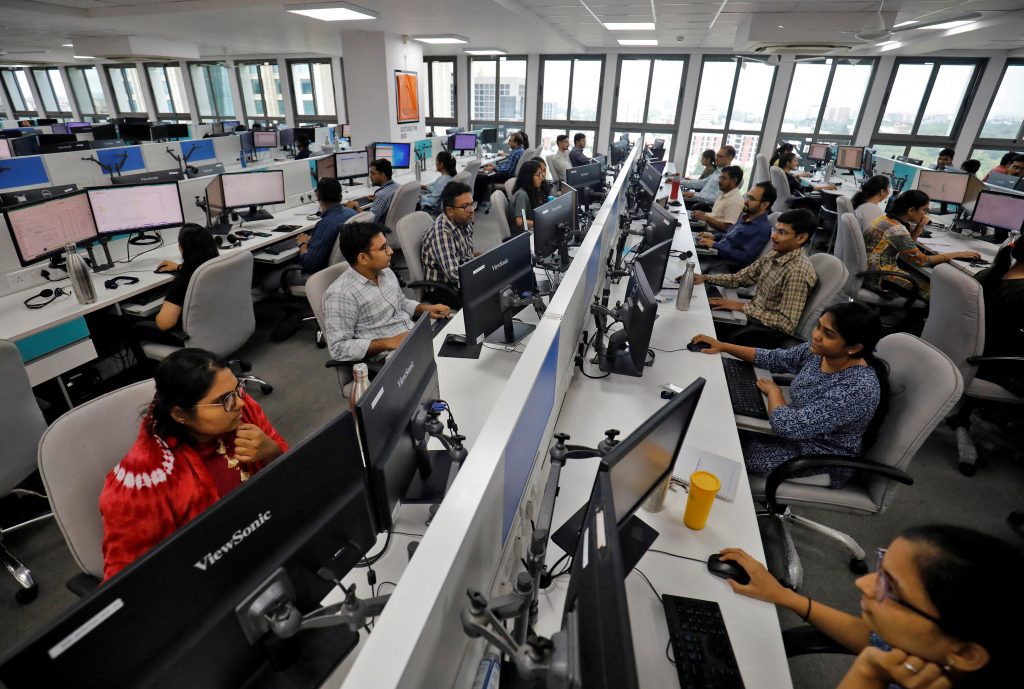
If people work 70 hours a week, where is the time to look after one’s emotional and physical health? So do we really want a $10 trillion economy but an unhealthy and mentally disturbed Gen X and Gen Z?
Recently, one of the country’s most famous billionaires who is ranked 48th in India’s Rich List by Forbes, sparked off a nationwide debate when he said that young Indians should work 70 hours a week to boost the nation’s economy.
Needless to say, the majority of India Inc and particularly those in the top 30 per cent who hold over 90 per cent of the country’s wealth and a majority of the entrepreneurs (not surprisingly), CEOs and industry leaders backed Infosys founder Narayana Murthy. However, there were some in the elite club who begged to differ with him and rooted in favour of a work-life balance.
Unsurprisingly, the reaction of the younger generation was by and large negative on social media because they felt that the top 30 per cent of the country’s wealth holders are not bothered about their welfare and are only looking at the bottomlines and further lining their golden nests.
I don’t blame them for thinking so, because according to the International Labour Organisation, Indians currently work an average of 47.7 hours a week, which is higher than our main economic rival China (46.1) the US (36.4), the UK (35.9), Japan (36.6) and Germany (34.4).
We must understand that what Murthy said came from a good place as he is one of the major job providers of the nation and he also burnt the candle on both ends to get where he did in life. While it is good to be concerned about the economy of the nation, we have to think about the welfare of the country’s human resources and how to maximize the demographic dividend without endangering its Mental Quotient (MQ) and Emotional Quotient (EQ). A 70-hour work week does not allow for a healthy MQ and EQ.
Also, this is an aspirational India we are living in with a predominantly young populace. Millennials and the oldest people in Gen Z make up the majority of the workforce. They want material things and they want them now. Add to that high inflation and a higher cost of living. So, any couple who wants to have a decent life has to have a “double engine” approach and both husband and wife have to work.
With most of the job opportunities being in metropolitans and Tier 1 cities, the country’s youth is forced to leave the security of the family home. A nuclear family means there is no support system for the couple and for their young children. So, the need for a working couple to strike a work-life balance is very important as they are bringing up the future of the nation, the next generation.
Children who are living alone will suffer mental health issues as will their parents, particularly mothers who will carry the double burden of emotional deprivation and a sense of guilt about being away from their kids. Mental health, which includes our emotional, psychological, and social wellbeing, impacts our feelings and actions. It also determines how we handle stress and relate to others.
India’s mental health burden is already very huge. A study titled, ‘The Burden Of Mental Disorders Across The States Of India: The Global Burden Of Disease Study 1990–2017’ released in December 2019 and published in ‘The Lancet Psychiatry’ says there were 197.3 million people with mental disorders in India in 2017, which is 14.3 per cent of the total population. Mental disorders contributed 4.7 per cent of the total DALYs in India in 2017 as compared to 2.5 per cent in 1990.
According to scientists, DALYs (Disability-adjusted life years) is a sum of the years of life lost (YLLs) due to premature mortality and the years lived with a disability (YLDs).
Dr Sagar, who is also the author of the Lancet study, has been quoted by media reports as saying that, “Our report has data starting from 1990 and it shows that in 27 years, DALYs has almost doubled and it’s a worrying trend. Also, mental disorders were the leading cause of YLDs in India, contributing 14.5 per cent of the total YLDs in 2017. The highest contribution to DALYs due to mental disorders in India in 2017 was from depressive disorders (33.8 per cent) and anxiety disorders (19 per cent).”
So, do we still want our young generation to work for 70 hours a week and burn out and have major mental health issues and lose their most productive years ahead by the time they reach their middle age? Where will that take our economy then?
Leave alone MQ and EQ. Let’s see how the country’s physical health is doing?
According to the Indian Council of Medical Research’s report, ‘India: Health of the Nation’s States- The India State-Level Disease Burden Initiative in 2017’ it is estimated that the proportion of deaths due to Non-Communicable Diseases (NCDs) in India increased from 37.9 per cent in 1990 to 61.8 per cent in 2016. The four major NCDs are cardiovascular diseases (CVDs), cancers, chronic respiratory diseases (CRDs) and diabetes which are basically lifestyle diseases caused by unhealthy diet, lack of physical activity, and use of tobacco and alcohol.
Plus NCDs reduce productivity of people and lead to a fall in the overall economic output. Every 10 per cent increase in NCDs mortality results in a 0.5 per cent reduction in annual economic growth.
If people work 70 hour weeks, where is the time to look after one’s mental, emotional and physical health? So do we really want a $10 trillion economy but an unhealthy and mentally disturbed Gen X and Gen Z? Do we really want to erode the very demographic dividend that we keep boasting about?
Plus, 70 hour weeks that leave no time for the family will result in divorces going up because people will be short of patience, tired, irritable and mentally unable to cope with the amount of work one needs to put in a marriage.
Right now, India has the lowest divorce rate globally at 0.01 per thousand (2022 figures) while those who would have us look at the long hours people in the West and China are putting in should know that the divorce rate in the US was 2.3 per thousand, 3.2 in China, 1.7 in the UK and 1.5 in Japan.
Also, a part of the economy is also fuelled by domestic tourism, the entertainment, hospitality and leisure industry. If people work 70-hour weeks, these industries will suffer majorly. The real estate sector will also be impacted as people will prefer to shop online instead of visiting brick and mortar stores on the one day off. So, with a reduced footfall in malls and shopping centres, real estate prices will take a hit as will jobs provided by offline retail stores.
Unemployment is so high in India, so instead of asking already overworked people to work more, why can’t the top 30 per cent of the country hire more people and run double or triple shifts? Agreed that the expenses will go up with having to hire more people, but so will the productivity and consequently the profit margins. Hiring more people to reduce the unemployment rate, while at the same time speeding up India’s push towards becoming a developed nation, is much more desirable than pushing people to the brink.
Last but not the least, we all have one life; we must balance it. Fulfil ambitions and yet find the time to enjoy, spend time with family and friends, play with the kids, go on those holidays, read that book, have lunch with a dear friend or just spend a day at the spa or tinkering around at home fulfilling some hobby. Love your nation, work hard for it but don’t sacrifice your wellbeing. Strike a work-life balance.
We must take what Murthy said as an inspiration to push our boundaries and come out of our comfort zones and professionally achieve more, definitely, but we must not forget to strike that work-life balance, because life is beautiful, but only if we know how to balance it.












